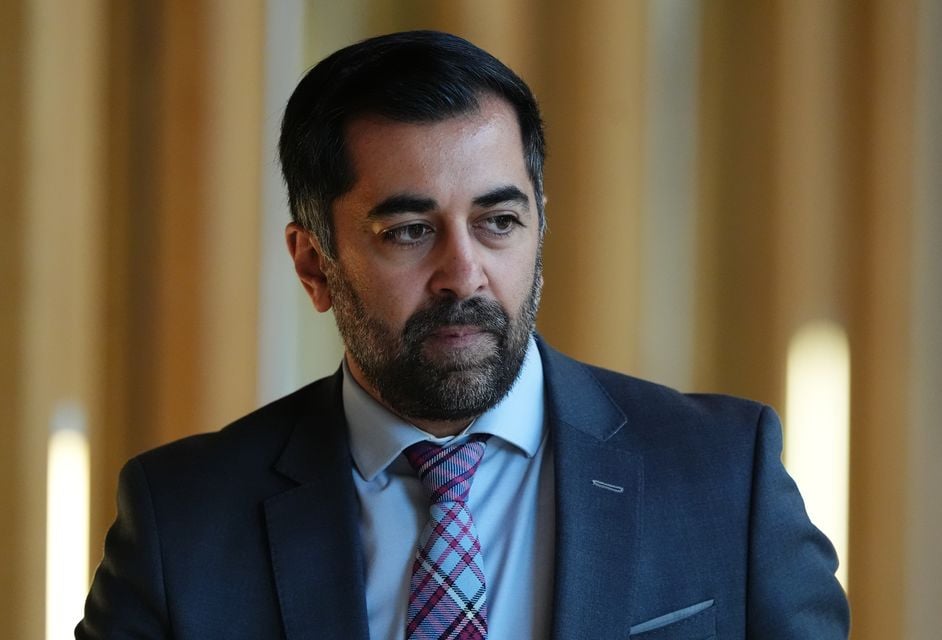Police officers may have acted as “super-spreaders” in the pandemic as expert advice was “ignored” by the Scottish Government and the ex-chief constable of Police Scotland, an inquiry heard.
Calum Steele, ex-general secretary of the Scottish Police Federation (SPF), former chairman David Hamilton, and vice chairman Brian Jones, gave evidence at the Scottish Covid-19 Inquiry on Monday and condemned decisions from the Scottish Government and ex-Chief Constable Sir Iain Livingstone.
A Scottish Government decision not to prioritise frontline police during the vaccine rollout was branded “perverse” and a “betrayal”, with one officer attending 75 callouts to different households in a single weekend, the inquiry heard.
Allegations that Sir Iain rejected calls for frontline officers to be given spare vaccines, refused to issue reusable rubber masks used by officers in Northern Ireland due to appearance, and refused an alternative to roadside breath-testing despite concerns about Covid-19 transmission were aired at the inquiry.
Giving evidence, union leaders said ex-Justice Secretary Humza Yousaf branded the SPF a “disgrace”, recalled they were a “pain in the backside”, and the conflict “became personal”, while evidence from a panel of experts commissioned by the SPF was met with “suspicion” and “ignored” by the government.
Mr Yousaf branded the SPF a disgrace, the inquiry heard (Andrew Milligan/PA)
Mr Steele told the inquiry Police Scotland “substantially absolved itself of health and safety responsibility” regarding adequacy of Personal Protective Equipment (PPE), despite an agreement before lockdown that FFP3 masks would be issued.
He said the force “refused” to log the rate of usage, and the risks were “exacerbated” by using the same mask throughout a shift – while another trade unionist said a “cost-effective” alternative was rejected due to appearance.
Mr Steele said: “The issue of FFP3 masks is probably the best example of the police service knowing it has a health and safety obligation and then ignoring it. We were largely dealing with people who were not complying with restrictions, people sceptical of the pandemic and therefore at greater risk.
“If a police officer attended an address that required them to wear an FFP3 mask, a risk assessment said it should be discarded. But the police service was not counting the masks that were being burned through.”
He said officers were “reusing the mask at other addresses, making physical contact with the mask with their fingertips, the risk was exacerbated”, and that calls to log the burn rate were “refused”, the inquiry heard.
Mr Steele added: “One of my colleagues went to 75 different households in one weekend. We were worried about acting as super-spreaders and have evidence that happened.”
Mr Jones said: “There were other items that would have saved money. The Police Service of Northern Ireland bought a rubber mask which can be cleaned. That was thought to be militaristic. That was the decision of the chief constable at the time.”
The use of FFP3 masks was “constantly criticised” due to the needs of frontline medics, the inquiry heard.
The SPF called for roadside breath tests to be replaced, and Mr Steele described the “totally dismissive” response as “institutional dishonesty”, and said Police Scotland “took ‘absence of evidence’ as ‘absence of risk’,” the inquiry heard.
Mr Steele said: “We had advice from experts there was a risk from aerosols. This was introducing risk. We suggested we should take a different approach, taking an assessment of if someone is under the influence and taking them back for analysis.
“The response from the police service was totally dismissive.”
Mr Hamilton added: “It showed the force in a quite ugly way. We always accepted we had a job to do but we could minimise the risks.”
He said it was “wholly inappropriate” that frontline officers were not given priority during the vaccine rollout, and alleged that Sir Iain refused to allow officers to use spare jabs, saying: “It’s bad optics,” the inquiry heard.
Mr Hamilton added: “Frontline officers tended to be the youngest and the last to get it. I would have given my vaccine to someone in their 20s. Those most at risk were last to get it. It was a Scottish Government choice not to vaccinate police officers they accepted were high risk.”
Mr Steele said: “That remains one of the most perverse decisions that really reinforced that they were casually disregarded. It had a really damaging impact on institutions of the state including their employer, the chief constable, to look after them.”
The inquiry continues before Lord Brodie in Edinburgh.
